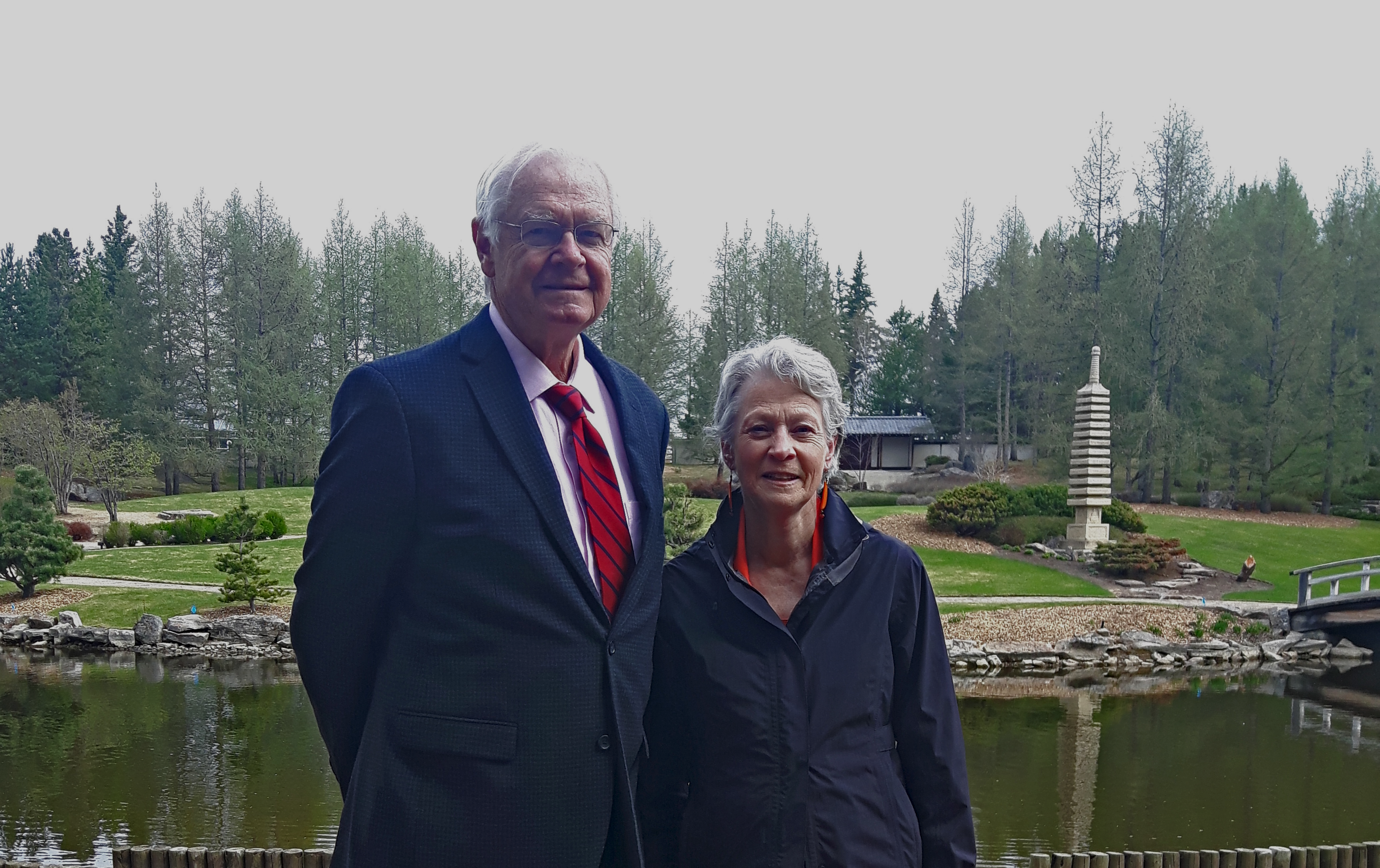MHSA grad wants to help improve quality of life in the North
Hersharon Sandhu - 02 December 2020

Ira Mitchell and his wife, Anne, standing in the Aga Khan Garden at the University of Alberta's Botanic Garden.
Seeking adventure to go along with his graduate studies, Ira Mitchell (MHSA ‘75) chose the University of Alberta because it was “as far away from Alabama as possible.” Little did he know that this decision would end up benefiting future public health students and the communities they will serve.
Mitchell’s experiences — both in and out of the classroom — led him to realize the benefit public health provides to society. “Scientists, caregivers and administrators have eliminated smallpox. Polio is down to three to four dozen cases a year. The reduction of infectious diseases in children has been phenomenal.”
After his first week of classes, Mitchell knew he had made the right choice in pursuing a masters in health services administration. He was struck by the superior academic background and debate skills that his fellow students possessed. “In the classroom, anything the professor said was subject to debate. I had never seen that before in the south. But I know the professors enjoyed it, as much as the students,” said Mitchell.
Small class sizes resulted in a rich social life with classmates and faculty members. The tight-knit community fostered Mitchell’s lifelong connection to the School of Public Health. With his colleagues, he visited the Rocky Mountains in Banff and Jasper. “We spent every weekend of my two summers camping in the mountains or exploring the nearby provincial parks.”
The lessons learned in and out of the classroom resonated with Mitchell. He made his first donation to the MHSA program in 1976, a year after graduation, in support of the robust education provided by the University of Alberta. “I wanted to begin to express my gratitude as soon as possible,” said Mitchell.
His strong belief in the value and need for public health continues today. “We have to continue the progress that has been made, striving to eradicate disease and improve quality of life for all peoples, especially the [Indigenous] communities to the north,” said Mitchell.
Many rural communities in Northern Canada are facing unique challenges due to geographic and social isolation, food insecurity, lack of housing and sanitation access, and population aging. These problems have far-reaching implications for the health and well-being of northern, Indigenous, and rural Canada.
Mitchell recognized that we need to build on the strengths and knowledge of all cultures to promote health equity and address climate change and environmental health impacts in the North. “Ideally, the goal would be to decrease the significant difference between the North and rest of Canada. People in the north have been marginalized for so long. I want to help move the train of progress along.” It is this strong belief in the value and urgency of public health that led Mitchell to include the School of Public Health in his estate plan and in his annual giving.
Public health professionals are trained to work with community members to build capacity and create more resilient communities. By supporting students at the School of Public Health, Mitchell hopes to have an impact on the future of the Canadian North. “I want to reduce the financial barriers for people who otherwise would not have been able to attend the graduate School of Public Health. I want to support those people’s efforts to learn and then continue whatever is needed to be done in the North at the time.”
Directly supporting students creates a larger pool of trained public health professionals who can work in and support northern communities. The outcome would be reduced health inequities and the creation of health solutions developed in collaboration with local health and Indigenous leaders.
As a young man, Mitchell did not have to worry much about the cost of education. “Back then, through a benefit from the [United States] army, it cost me nothing to go to school.” Now, as he enjoys retirement with his wife, he wants to help students considering a degree from the School of Public Health access the same education he received, so they can “continue the progress” of public health.
STAY IN THE KNOW
WAYS TO MAKE A DIFFERENCE
Supporters who choose to give to the School of Public Health are making a life-changing investment in the lives of our students and the field of public health.